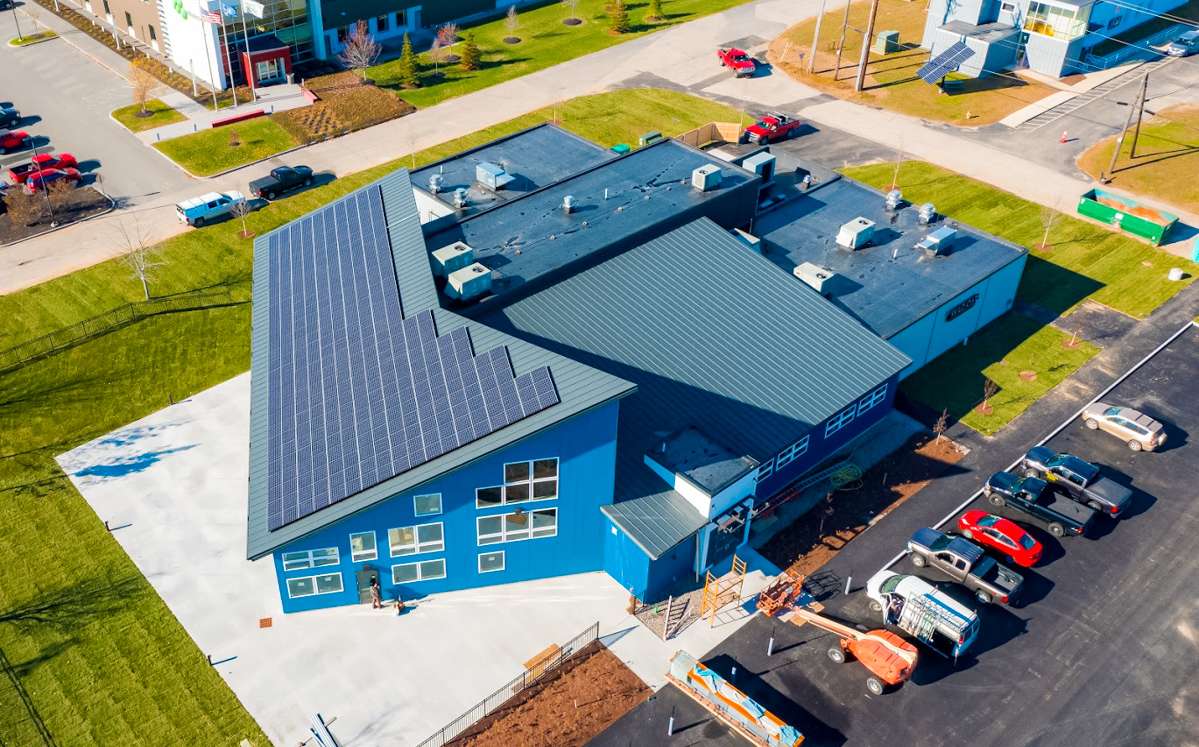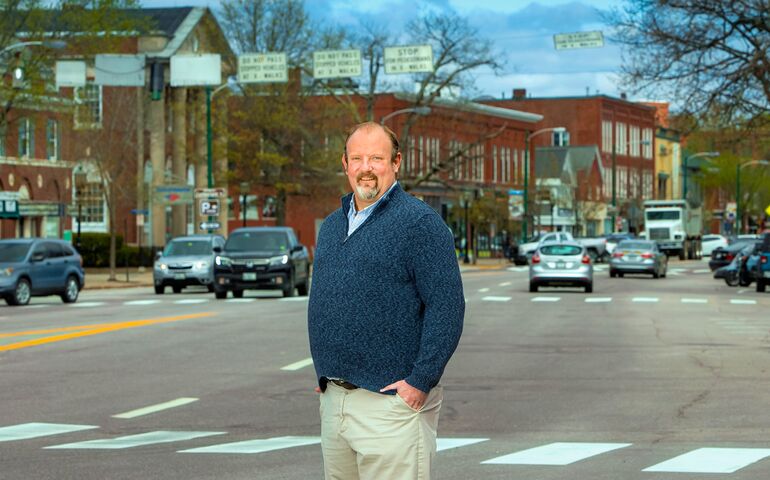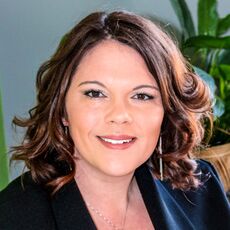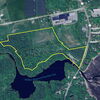
Processing Your Payment
Please do not leave this page until complete. This can take a few moments.
- News
-
Editions
View Digital Editions
Biweekly Issues
- November 17,2025
- November 03, 2025
- October 20, 2025
- October 6, 2025
- September 22, 2025
- September 8, 2025
- + More
Special Editions
- Lists
- Viewpoints
-
Our Events
Event Info
Award Honorees
- Calendar
- Biz Marketplace
With few events, Maine’s chambers get creative to connect — and earn revenue
 Photo / Tim Greenway
Cory King, executive director of the Southern Midcoast Maine Chamber, said the state’s chambers have seen "fundamental" changes in the past year.
Photo / Tim Greenway
Cory King, executive director of the Southern Midcoast Maine Chamber, said the state’s chambers have seen "fundamental" changes in the past year.
With the pandemic making in-person networking and glad-handing impossible, the regional chambers of commerce that make their bread-and-butter through events had to retool to survive.
Some of the roughly 60 chambers across the state, including the Bucksport Bay Area Chamber of Commerce, didn’t make it through the pandemic. Across the state, 65% of chamber staffers were working reduced hours or were let go.
Fundraising events such as the annual Yarmouth Clam Festival were canceled for 2020 and this year, disrupting cash flow and budgets for those chambers. That left memberships dues or sponsorships as the lifeline for chambers, which, as nonprofits, weren’t eligible for the Payroll Protection Program until the most recent round.
Chambers had to regroup to survive. Many thrived and showed members new ways to benefit from the organizations by becoming the information conduit about state rules, federal programs and COVID protocols. Others tightened their budgets to ride out the pandemic.
“This was a fundamental change for our area for how businesses perceived what the chamber is,” says Cory King, executive director of the Southern Midcoast Maine Chamber. “Really what chambers have always done was worked on issues most important to businesses and that involved a lot of networking and marketing. The return on investment wasn’t always that clear sometimes. The pandemic — with chambers being on the front line of sharing information — sped up the idea of return on investment.”
Offering small businesses a voice
The Southern Midcoast Maine Chamber did several surveys to inform members about topics such as consumers’ views on masking and social distancing at stores and businesses during the pandemic. That chamber also set up a member forum with U.S. Sens. Angus King and Susan Collins, and U.S. Reps. Chellie Pingree and Jared Golden.
“It wasn’t just them telling us their political speak. We got to tell them what we needed. It felt like I had a voice that I wouldn’t have had on my own,” says Allison Hopkins, owner of Wilcox Wellness and Fitness in Brunswick. “The chamber helped me feel that there was a larger voice speaking on my behalf and that made me feel less hopeless.”
Katie Doherty, president and CEO of the Kennebec Valley Chamber of Commerce, launched a new series via zoom called “Chamber Connect” that was free to members to give them information and access to speakers from the state Department of Labor, the Maine Department of Economic and Community Development and the Small Business Administration.
The series was offered weekly at times during the pandemic because there was so much information members needed, Doherty says.
“Everything changed last year. Normally we have a BrewFest, monthly business breakfasts and after-hours events. We went virtual. We worked around the clock. Members needed us and it was a way for members to see the value of the chamber,” Doherty says.
The Kennebec Valley Chamber, which has roughly 600 members, actually gained new members during the pandemic, Doherty says.
“The pandemic really gave the chamber the chance to shine and gave members a chance to directly ask questions to state commissioners each week,” Doherty says.
New relevance
Marshall Shepherd, project manager at Wild Oats Bakery & Cafe in Brunswick, says the pandemic helped it appreciate the Southern Midcoast Maine Chamber more than the business had in its 30 years of membership.
Wild Oats moved locations from downtown Brunswick to Brunswick Landing amid a pandemic and a drop in revenues because of the shutdown and restrictions. The move was stressful and the businesses needed customers to follow it to the new spot.
King helped get the word out about the expansion and move by filming a video showing that the new Wild Oats location was only six minutes from the old one. The chamber also held a virtual ribbon-cutting event for the bakery cafe.
“We went from the lowest level of membership participation to contribute more money to the chamber. We’re now die-hard chamber supporters,” Shepherd says. “We got really tangible benefits. The chamber figured out what we needed and gave us real results.”

Finding new revenue sources
Shanna Cox, president and CEO of the Lewiston Auburn Metropolitan Chamber of Commerce, had only been in the position three months when the pandemic hit. The chamber, which has more than 700 members, changed its membership rate model by allowing businesses to pick the price point and benefits they wanted.
“We wanted to make sure we stayed relevant and connected to businesses,” Cox says.

A monthly breakfast had been the LA Metro Chamber’s biggest event before the pandemic and with a lot of retooling it continued in a new form.
The chamber delivered breakfast to 70 to 80 businesses a month and had a streaming event with a speaker. Cox says that $15 per business event was invaluable to the chamber because it allowed her to see how businesses were operating during the pandemic, hear about their concerns and get a little masked-up personal time to connect with members.
“They were really grateful to us for coming to their businesses and it gave them a reminder that we’re still there and listening to what they need,” Cox says.
The LA Metro Chamber also live-streamed its “40 Under 40” award program for rising professions. Ahead of the event, the chamber delivered decorations, favors, vouchers for restaurants and beverages so that participants got a sense of the festivity of an event — even if it was virtual, Cox says.
“We have more new members and membership retention in 2020 was actually better than in prior years,” Cox says. “We were a reliable source of information, and broke down wonky policy talk to helpful, relevant, need-to-know information. If you’re head chef, marketing person and owner of a business all at once, you don’t have time to listen in or decipher state and federal rules. We helped people sort out what they needed to know to run their businesses.”
“We got feedback from members, saying they understood why they were members of the chamber now, as opposed to before when it might have seemed like the right to do. We’re grateful they chose to spend their time and dollars with us,” Cox says.
Tightening belts
Not every chamber was able to revamp events or connect as often with members.
Lisa Hagen, executive director of the Damariscotta Region Chamber of Commerce, says the chamber hasn’t held a Business After Hours event since February, 2020. They will resume outside events this summer. The “Lunch and Learn” events also haven’t been done in a year, but were expected to resume in May.
The Damariscotta chamber decided not to try to reformat those events online because “people had a lot of Zoom in their lives already,’ Hagen says.
One chamber effort that was successful was an open-air market that allowed businesses to bring their goods outside onto Damariscotta’s sidewalks and parking spaces on Main Street.
“People weren’t going inside businesses. People were afraid to shop. So, we did it to help businesses out,” Hagen says.
The chamber also volunteers for the Damariscotta Pumpkinfest & Regatta, which was canceled last year. The multi-day event usually brings thousands of people to the town and creates exposure and sales for businesses. This year, there will be a smaller, modified Pumpkinfest that the chamber will help with, Hagen said.
Hagen says the chamber lost some members during 2020, but has recently seen an increase in new businesses joining and old members rejoining.
Further south, Adrienne Nardi, executive director of the Yarmouth Chamber of Commerce, says it has suffered due to the cancellation of the annual Yarmouth Clam Festival for two years. The 3-day event provides funding for everything from youth sports teams to the chamber’s budget.
“It creates a big chunk of our income and budget,” Nardi says. “Without it, we’ve been a little tight.”
The Yarmouth Chamber lost one staffer, leaving Nardi alone to run the chamber. It also moved to a smaller office to save on rent and moved its information technology system to the cloud instead of a server to save on costs.
“We had to scale back everything,” Nardi says. “We’re basically cinching our belts until COVID is over.”
The Yarmouth Chamber hosted a few “Business After Hours” events outside and held a modified golf tournament, but otherwise was limited in its ability to connect with members, Nardi says.
Going forward
The Kennebec Valley Chamber rethought the value of many of its events during the pandemic. It may keep many of the changes implemented during the pandemic because they turned out to be more successful, such as keeping its business breakfast via zoom, and permanently discarding other events such as the annual Expo of businesses.
“We learned a lot about what was most relevant and convenient and important to members,” Doherty says.
For the LA Metro Chamber, it learned that virtual board meetings became easier for participants to attend and it plans to keep that change.
“The pandemic helped people become better at change. There are fewer sacred cows now. Things that I would have hoped to change over two or three years, I was able to change in six months because we had to,” Cox says.
Going forward, chambers may look and act differently.
“In 10 years, I expect there will be few chambers and we’ll have a few mega-chambers. That pandemic may have even accelerated that timeline,” King says.
“I think we need to get beyond our high school football rivalries. It’s not ‘Us versus them versus each other,’ it’s ‘Us versus Boston or Burlington or other regions.’ We need to think bigger and regionally,” King says. “There may be some loss of identity and losses of people, but we need to think on a broader scale for Maine businesses to compete.”
Mainebiz web partners
Great article!

The Giving Guide
The Giving Guide helps nonprofits have the opportunity to showcase and differentiate their organizations so that businesses better understand how they can contribute to a nonprofit’s mission and work.
Learn More
Work for ME
Work for ME is a workforce development tool to help Maine’s employers target Maine’s emerging workforce. Work for ME highlights each industry, its impact on Maine’s economy, the jobs available to entry-level workers, the training and education needed to get a career started.
Learn More
Groundbreaking Maine
Whether you’re a developer, financer, architect, or industry enthusiast, Groundbreaking Maine is crafted to be your go-to source for valuable insights in Maine’s real estate and construction community.
Learn more-
The Giving Guide
The Giving Guide helps nonprofits have the opportunity to showcase and differentiate their organizations so that businesses better understand how they can contribute to a nonprofit’s mission and work.
-
Work for ME
Work for ME is a workforce development tool to help Maine’s employers target Maine’s emerging workforce. Work for ME highlights each industry, its impact on Maine’s economy, the jobs available to entry-level workers, the training and education needed to get a career started.
-
Groundbreaking Maine
Whether you’re a developer, financer, architect, or industry enthusiast, Groundbreaking Maine is crafted to be your go-to source for valuable insights in Maine’s real estate and construction community.
ABOUT
NEW ENGLAND BUSINESS MEDIA SITES
No articles left
Get access now
In order to use this feature, we need some information from you. You can also login or register for a free account.
By clicking submit you are agreeing to our cookie usage and Privacy Policy
Already have an account? Login
Already have an account? Login
Want to create an account? Register
Get access now
In order to use this feature, we need some information from you. You can also login or register for a free account.
By clicking submit you are agreeing to our cookie usage and Privacy Policy
Already have an account? Login
Already have an account? Login
Want to create an account? Register







1 Comments